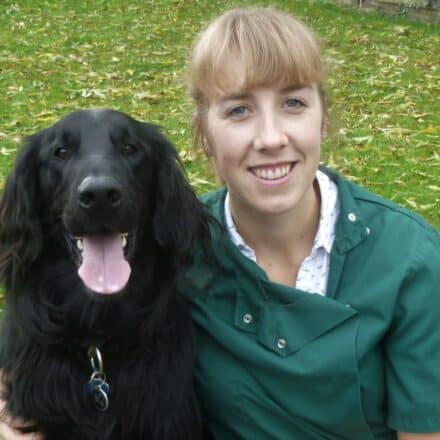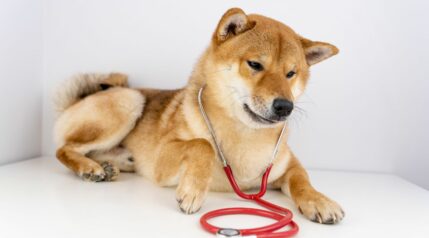Cancer is a word many of us fear, not just for ourselves but for our beloved pets too. However, cancer is a very broad term, covering an array of different conditions and tumors.
Hopefully, this makes you feel more confident if you are ever in the position of having these discussions with your veterinarian.
What Is Cancer?

You may notice different symptoms depending on the type of cancer your dog has. Skin tumors are the most commonly diagnosed, with a lump on your dog’s skin being the first thing you see. With other cancers, your dog may experience weight loss, limping, lethargy, or even collapse.
A mutation in the way the body divides its cells is what causes cancer. This can occur spontaneously or due to a trigger such as exposure to excessive sunlight or cigarette smoke. These abnormal cells can take over and invade the affected organ causing its function to become impaired.
, and some factors increase risk, such as being unspayed or neutered. For example, not having a female dog spayed at a young age can make mammary tumors more likely, and unneutered male dogs can suffer from testosterone-related anal tumors.
Which Types Of Cancer Affect Dogs?

Cancer can affect any organ in the body, including the skin, lungs, mammary glands, bladder, and brain, so it would be hard to cover every type in detail. Instead, we concentrate on some of the most commonly diagnosed ones seen in dogs.
Mast Cell Tumors
Mast cell tumors (MCTs) are common skin tumors found in dogs. They can present in a variety of ways, so diagnosis can’t be made by examination alone. MCTs can also vary in malignancy, with some low-grade tumors only being locally invasive, whereas high-grade ones could metastasize and spread elsewhere. Some breeds are more prone to MCTs than others, including boxer dogs and Staffordshire bull terriers.
Lymphoma
Lymphoma is cancer of the lymphoid tissue affecting the lymph nodes, spleen, and bone marrow. This disease is variable, with multicentric lymphoma being the most common and affected dogs having multiple enlarged lymph nodes.
There is also a type of lymphoma that specifically affects the digestive tract, although this is less common. These dogs suffer from digestive issues and weight loss.
Treatment for lymphoma usually involves chemotherapy, with a prognosis depending on the type of disease (B-cell or T-cell lymphoma).
Melanoma
Malignant melanomas are tumors that contain melanocytes (pigment-making cells). So these tumors are found in locations that contain pigments such as the skin, eyes, and mouth. Breeds of darker-pigmented dogs are at greater risk of these tumors, so black dogs are more likely to develop melanomas.
Osteosarcoma
Osteosarcomas are the most common bone tumor in dogs. As well as causing damage and pain to the bone itself, these tumors are malignant, meaning they can spread elsewhere in the body. Osteosarcomas tend to affect large breed dogs, such as Irish Wolfhounds and Rottweilers, causing severe lameness.
Mammary Tumors
Cancer of the mammary glands can be variable. Some tumors are benign, but around half are malignant, with some containing a mixture of tissue. Treatment usually involves surgical removal of the affected mammary glands, with a prognosis depending on the size of the tumor and how aggressive it is.
Hemangiosarcoma
This type of tumor affects blood vessels and can grow in different locations in the body, but most are found in the spleen, heart, or liver in dogs.
Hemangiosarcomas can go unnoticed until they rupture, causing a sudden bleed. Affected dogs may present with lethargy or collapse due to the hemorrhage. The long-term prognosis for these animals is poor due to their malignant nature.
How Is Cancer Diagnosed?

Many pet parents notice something isn’t quite right with their dogs and present them to their veterinarian for an examination. This could be because of various symptoms, including a lump, a cough, weight loss, or lethargy.
Diagnostics could include a fine needle aspirate, whereby a small needle is inserted into a tumor to collect cells. These cells are then analyzed under the microscope to look for any suspicious ones. If the result is inconclusive or if more information is needed, then a biopsy might be performed. A biopsy involves a sample of the tissue being taken and sent away for interpretation. This is usually done surgically or with a much wider needle.
Other forms of cancer are diagnosed through a combination of blood tests and diagnostic imaging like X-rays or ultrasound scans. Sometimes advanced diagnostic imaging is required, such as CT (computed tomography) or MRI (magnetic resonance imaging) scans, especially if the cancer is in the brain or spinal cord.
Does My Pet Insurance Cover Cancer?
If you suspect your dog may have cancer, this is a good time to check your pet insurance policy and make sure you are clear on your coverage. Most policies will cover some if not all of your treatments, up to your deductible and limits, so long as it is not a pre-existing condition when you signed up.
How Do We Treat Cancer In Dogs?

Benign skin masses, for example, can be surgically removed with no follow-up treatment required. However, malignant skin masses may need very extensive surgery with chemotherapy afterward to ensure that all of the cancer cells have gone.
Surgery is the treatment of choice for many cancers, just as it is in people. However, removing the tumor can be quite invasive if it affects a major organ like the spleen or the brain. So it is not without risk. Tumor staging can be helpful when deciding whether to proceed with surgery or not. X-rays or CT scans may show that there is spread to the lungs, or samples might show it spread to the lymph nodes. Proceeding with surgery may not be advised if the long-term prognosis is shown to be poor and it is decided that it is not in the animal’s best interest to put them through a major operation.
Other forms of cancer, like lymphoma, are treated through chemotherapy alone. Many dogs do well with chemotherapy and don’t appear to suffer from the same side effects that people do. They don’t lose their hair or suffer from as much nausea. The exact chemotherapy protocol depends on the type of cancer but could involve a combination of drugs delivered intravenously (via a drip) and tablets.
Will My Dog Die From Cancer?

Sadly, in some cases, yes. But these are in the minority of cancer cases overall. Most cancers can be treated and well managed, especially if they are caught and treated early. Many tumors are benign and respond well to intervention. However, by the time the cancer is found, it may have already spread elsewhere in the body.
Your dog’s prognosis depends on how malignant the disease is and whether it has spread to other areas like the lymph nodes or lungs. Sadly, your dog may die of his illness, or you may opt for euthanasia if his quality of life starts to deteriorate.
Can I Prevent My Dog From Getting Cancer?
Choosing a puppy that comes from a family with no cancer history might reduce the risk in breeds that are genetically predisposed to the disease. Getting your dog de-sexed reduces the chances of certain sex hormone-related cancers, such as mammary tumors or anal adenomas.
Ensuring your dog is on a good-quality diet that is appropriate for his age and breed also helps. This ensures he gets all the nutrients needed and maintains an appropriate body weight. A healthy diet sets him up in the best position health-wise.
Taking your dog for regular check-ups with your veterinarian makes sure any problems are identified early on. It’s natural to feel frightened if you find a lump on your dog, but instead, you should channel your energy into being proactive. Take him to the vet to get him checked out sooner rather than later – if nothing else, it can put your mind at rest quicker.
Frequently Asked Questions
What does it mean when a dog has cancer?
Cancer means there has been a mutation leading to the abnormal growth of cells in your dog. Some cancer is benign, which means they are slow-growing and won’t spread elsewhere in the body. Other cancers can be malignant, meaning they are more aggressive and can spread to multiple locations, causing widespread problems.
What is the most dangerous cancer in dogs?
Several cancers carry a poor long-term prognosis. These include osteosarcomas (bone tumors), malignant melanomas, hemangiosarcomas (blood vessel tumors), and inflammatory mammary carcinomas. Your veterinarian can talk you through the best treatment options for your pet, but, in some cases, this may include euthanasia if it is deemed in the best interests of your pet.
What type of cancer can a black dog get?
Cancer knows no color. So, black-coated dogs can suffer from all of the same cancer types that other dogs can. However, black dogs are more prone to melanomas, a type of tumor that can be malignant. These are most commonly found in the nail beds or mouths of affected dogs.
Final Thoughts
The only way you know for sure what is going on with your pet is to take them to the veterinarian. Once diagnosed, your vet will discuss all the treatment options so you can put together a plan for your dog’s ongoing care.
If you are reading this, chances are high that you need lots of love and support. We hope this article brings you some solace and understanding during this difficult time.





